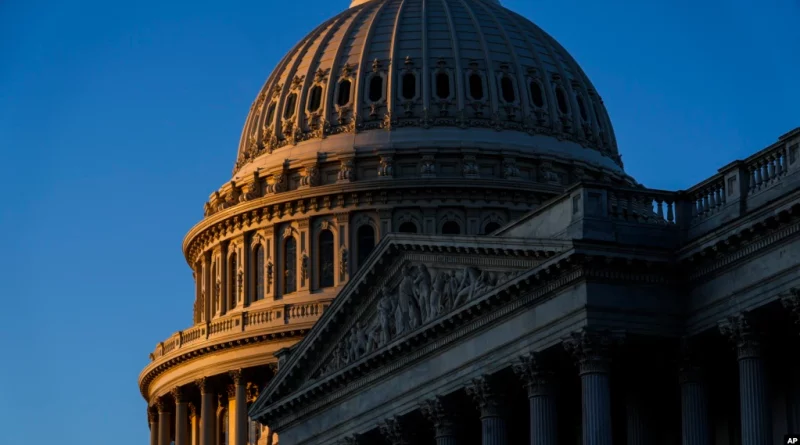Senate introduced a $1.66 trillion government spending bill
Senate introduced a $1.66 trillion government spending bill
The $1.66 trillion government funding bill has received overwhelming bipartisan support in the U.S. Senate as lawmakers look to pass it before the weekend deadline to avoid a partial shutdown of federal agencies.
Negotiators from both parties had already agreed early on this sweeping bill to fund the federal government through the end of the fiscal year (Sept. 30), increasing funding from about $1.5 trillion last fiscal year to $1.66.
Seventy senators voted “yes” and only 25 “no” to continue debate on the bill. A small group of conservative Republican senators said they objected to the bill but would not try to stop it from passing.
“Under no circumstances will we go beyond the deadline for its passage,” said Senator Mike Lee, who joined the news conference with four associates. Another Republican senator, Mike Brown, said the group will step up its efforts on budget reform next year when Republicans take control of the U.S. House of Representatives.
“We’re not going to win this war by playing up the spectacle,” Brown added.
The bill includes various other measures agreed to in cross-party negotiations, including a ban on the use of TikTok on government devices and clarifying Congress’ role in certifying election results to avoid a repeat of Jan. 6, 2021.
U.S. Senate and House leaders intend to pass the 4,155-page bill and send it to U.S. President Joe Biden for his signature by the end of the week to ensure a smooth government operation.
Last week’s vote was the first in a series of steps toward passing the legislation.
Senate Republican Minority Leader Mitch McConnell announced that much of his caucus supports passage of the bill: “We’re moving toward the end of the year. And I think it’s very productive in terms of the vast majority of Republicans in the Senate.”
Failure to pass the bill on time could lead to a partial government shutdown as early as Saturday, just before Christmas, and possibly even a months-long political standoff after Republicans take control of the U.S. House of Representatives on Jan. 3, squeezing Democrats in both houses of Congress.
Budget experts have criticized the amount of funding outlined in the bill.
“This budget is too late and too big,” said Maya McGuiness, president of the non-governmental organization Committee for a Responsible Federal Budget. She stressed that most of the spending increases should keep pace with inflation, but added: “Smaller numbers would help lower inflation.”
